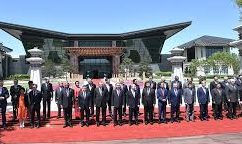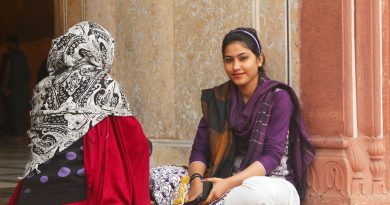Op-ed Writing Workshop Aims to Make Diplo Students More Marketable
Saveria Antonacci
Staff Writer
On Thursday, the School of Diplomacy and International Relations ran its fifth annual Op-ed Writing Workshop. Dr. Martin Edwards, an Associate Professor in the School of Diplomacy, ran the interactive lecture with students to discuss what op-eds are and useful tips for writing them.
Op-ed stands for “opposite of the editorial column” or “opinion editorial.” It is a method to publish writing without being an editor of the news or commentary source. This style of writing may be difficult for students, as it is very different from academic writing. While academic writing is long and complicated, op-eds must be concise and easily understood. Students can include colloquialisms, numbered-lists, or other elements of writing considered “inappropriate” for academic writing.
When submitting op-eds, students must remember their “ABCs” meaning they must have a defined argument, maintain brevity, and stay in touch with current events. Op-eds must take an angle on issues that are relevant and explain them clearly. At the same time, it is safe to assume that readers already have some background knowledge on the event or topic being discussed. It is wise to aim for an informed, but not expert audience.
Undoubtedly, the process for writing and getting an op-ed approved is challenging and requires practice. It can also take months for a piece to be approved. It is important to remember that editors sift through hundreds of submissions each week. Despite this, editors will appreciate if submissions follow their guidelines and reflect the tone of the news or commentary outlet. Most op-eds are required to be 800 to 1000 words, and it is helpful to mention the guidelines in pitch letters when submitting a piece of writing.
As for handling rejection, Dr. Edwards says “think of yourself as bulletproof.” Rejection will only get easier if you take it with a grain of salt. The editing process can also be a blow to morale but it is important to accept the edits and learn from them. Overall, students must remain humble and remember that writing is always a learning process.
Throughout the lecture, Dr. Edwards stressed the importance of op-ed articles for making students marketable. He noted how Seton Hall University students face competition from many prestigious schools. Dr. Edwards stated, “The job market is very competitive, students need to think about how to differentiate themselves, and this is an efficient way to do that.” To have writing published in a journal, blog, or newspaper is a way to prove that a student’s written communication skills are strong. It will also differentiate students from those that submit writing purposed for university as their sample in job applications. He then said “you’re in Diplomacy to both master a body of knowledge, but also to develop skills that will help you moving forward.”
When asked about his motivations for holding these lectures, Dr. Edwards stated “Once I started figuring out how to do this, then it became incumbent on me to hold these workshops for students to teach other.” He believes that faculty are a great resource to guide students through this process. Dr. Edwards went on to say, “Diplomacy faculty have won three of the four University Teacher of the Year awards, and students need to take advantage of the opportunities that faculty are building for them outside of class every single day.” Team effort is extremely helpful with these types of learning endeavors. Dr. Edwards especially noticed this after relying on 14 graduate and undergraduate research assistants to assist him in writing his book.
Overall, Dr. Edwards wants students to learn from the mistakes they make in the process of writing op-eds. It is a useful way for students to improve their writing, while also working on something they love. While discussing how to pick a topic he stated, “If you don’t know what you care about, don’t start writing.”



